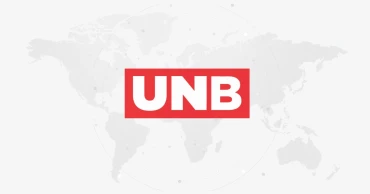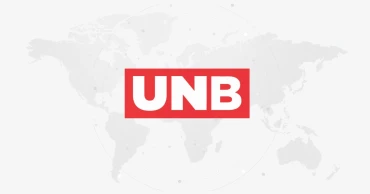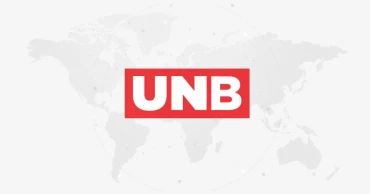Interest
3-Monthly Profit-Bearing Sanchayapatra in Bangladesh: Revised Profit Rates in 2025
The National Savings Scheme 2025 introduced notable changes across all savings certificates in Bangladesh that include the 3-month profit-bearing Sanchayapatra. It focuses on higher profit rates every 3 months for both maturity and early cash-out scenarios against various types of investments. On January 21, the National Savings Department's website disclosed details about tax deductions at source. This clarified the exact amount to be given on savings certificates at maturity or during early withdrawal. Let’s explore the new profit structure of the quarterly interest-bearing scheme.
1 year ago
DSE urges tax exemption on earned interest in bond market
The Dhaka Stock Exchange (DSE) on Tuesday urged the government to consider its 6-point proposal on the budget for the fiscal year 2023-24, to encourage investment.
DSE Board of Directors Chairman, Professor Hafiz Hasan Babu made the call from a 'post-budget press conference' at a hotel in the capital on Tuesday.
The proposals are tax-exemption for earned interest on bonds, to reduce the tax gap between listed and non-listed companies to 10 percent, reduce VAT from 15 percent to 10 percent for companies in the capital market, reduce the tax gap to 10 percent for stock exchange SME companies, and reduce tax at source on broker houses’ transactions.
Also Read: DSE seeks inclusion of four points to facilitate investors
In a written speech at the press conference, DSE Chairman said that currently, the size of the corporate bond market is very small which creates limitations in the capital market as well as in the financial market.
Also Read: DSE market capitalisation increased by Tk4.5 lakh crore in 2022
“A well-functioning bond market can help the economy in several ways. Exemption of tax on interest in all types of bonds would encourage creating a strong bond market," he said.
2 years ago
Banks reschedule loans worth nearly Tk 6000 crore, waive Tk 2800 crore in interest in first 6 months of 2022
Despite reduced instalment facilities in term loans, banks have rescheduled loans worth Tk5960 crore and waived interest amounting to Tk2816 crore of interest waived in 6 months (January-June), revealed latest data of Bangladesh Bank (BB).
According to the BB data, state-owned banks rescheduled loans worth Tk 1,300 crore, while private banks Tk 4,150 crore. The remaining Tk 779 crore has been rescheduled by specialized banks.
The BB introduced a loan moratorium and reduced instalment facility during the Covid pandemic to avert huge defaults as the businesses were affected by the adverse impact of the Covid-19 pandemic.
Read: Default bank loans surge to record Tk 1.25 lakh crore in Bangladesh: BB
Despite those moves, the accumulated default loans rose to Tk1.25 lakh crore till June this year. The banks had to reschedule around Tk5960 crore, posing a challenge to the sector.
Bankers said many small and big businesses have been affected due to the pandemic. Many have halted regular loan repayments, raising the issue of the pandemic. Some banks are not able to collect the loan repayments due to irregularities and corruption.
As a result, the default loan volume is increasing, and now stands at around 9 per cent of the country’s total disbursement of loans.
3 years ago
BB Governor rules out lifting interest rate cap
Bangladesh Bank Governor Abdur Rouf Talukder on Saturday said it is not possible to lift the interest rate cap on bank lending (9 percent) in the current situation.
He said this while speaking at a program at the Bangladesh Institute of Bank Management (BIBM) held in Mirpur in the capital.
Abdur Rouf Talukder said the entire world is now facing a challenge and Bangladesh is no different. In this situation, it is not possible to raise the cap, as many economists have advised to tackle inflation, in line with most central banks around the world that are fighting inflation.
During a highly anticipated speech at the annual Jackson Hole conference in Wyoming on Friday, Jerome Powell, the chair of the US Federal Reserve, America's central bank, said they must continue to raise interest rates to stop inflation from becoming "a permanent aspect of the US economy."
Read: The first Bangladeshi ship carrying jhut leaves for India
"Reducing inflation is likely to require a sustained period of below-trend growth," Powell said at the meeting.
Policymakers in Bangladesh however, seem to be banking on the wealth effects of growth to beat out the depreciating effect of inflation.
“If it happens (the cap is raised), the private sector will suffer. The overall supply chain will be disrupted. At the moment, there is no decision on lifting the lending cap,” the governor said.
“After taking charge as the governor of the central bank, I spoke to the bank chairmen, managing directors, and chief executives. I have wanted to know the problems and possibilities of the country's banking sector from them,” he added.
The BB governor hints that there is a dollar crisis and inflation problem, but both would last no longer than 2-3 months.
3 years ago
Interest rates on Agri credits, pre-shipment loans further reduced
Bangladesh Bank has reduced the interest rates on both agriculture and rural credits and export-oriented pre-shipment support loans.
As per the new decision, the borrowers of the agriculture and rural credits will pay highest 8 percent interest instead of the existing 9 percent on their loans.
Besides, the borrowers of export-oriented pre-shipment credit will pay highest 5 percent interest instead of the existing 6 percent, said two separate circulars of the central bank.
Also read: Extended lockdown: Banks’ limited operation to continue until April 28
The circular, issued by the Banking Regulations and Policy Department, said the initiative for the agriculture and rural sector was taken as part of the support to bring back the productivity in the sector that was affected by the Covid-19 in 2020 like other sectors of the economy.
Mentioning the agriculture and rural sector as an important one for ensuring food security of the country, the circular said the new interest rate will be effective from April 1 this year.
It added that the highest interest rate for the sector was capped at 10 percent considering it a priority sector and then it was brought down to 9 along with all other interest rates except for credit cards from April 1 in 2020.
Read Interest rates of savings certificates not lowered: Govt
The other circular, issued by the same department, said the interest on credit for the pre-shipment facilities was re-fixed at 5 percent instead of existing 6 percent to ensure soft loan for the sector to attain further growth in export business.
It mentioned that a Tk 5,000 crore re-financing scheme was launched in 2020 to support the export-oriented industries against the effect of the Covid-19 to continue earning of foreign currency and bringing pace in the economy.
The circular said the banks will receive the loan from the central bank at a rate of 2 percent interest while they will disburse it at highest 5 percent interest with effect from April 1.
Also read: Inter-bank cheque settlement, e-fund transfer system resumed at BB
4 years ago




.jpg)



